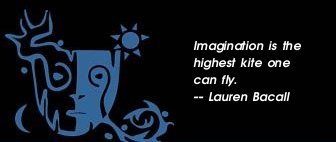|


Gertrud Mueller Nelson
is a writer, artist, lecturer, and educator. She is a graduate of the C.G.Jung
Institute in Zurich. Her books include To Dance With God and Here All
Dwell Free: Stories to Heal the Wounded Feminine. Following is an
excerpt with her permission from Here All Dwell Free, the book in
which she presents and analyzes two well known fairy tales, “The Handless
Maiden,” and “Briar Rose.” Nelson will speak about these fairy tales and the
theme of going “into the woods” at Mythic Journeys! This excerpt, Hidden Growth
, is from her analysis of Briar Rose, pages 195 and 196.
Hidden Growth
 The darkness, the depression, that dreadful feeling of emptiness and cautious
hope that a period of waiting extracts from us may also be understood as a
period when creative energy must quietly accumulate. Deep down where it is dark
and moist, in the hidden place, the germ will sprout. Only in darkness will it
take root. Darkness, so often seen as negative, is clearly necessary to
fertility and hidden growth. A great energy is building and growing where we
cannot see it. All of life seems silent and asleep before the creative
breakthrough.
The darkness, the depression, that dreadful feeling of emptiness and cautious
hope that a period of waiting extracts from us may also be understood as a
period when creative energy must quietly accumulate. Deep down where it is dark
and moist, in the hidden place, the germ will sprout. Only in darkness will it
take root. Darkness, so often seen as negative, is clearly necessary to
fertility and hidden growth. A great energy is building and growing where we
cannot see it. All of life seems silent and asleep before the creative
breakthrough.
In myths, the fields must lie fallow and receptive before the corn goddess will
allow the grain to grow again. In our own experience, any great work of art,
any real relationship, certainly any healthy baby, needs a period of silent,
undercover becoming. The creative process makes one, essentially, pregnant.
The value of this time of lying fallow is not very popular in Western culture.
We don’t like darkness. We don’t like to wait patiently for what is unseen to
gather the energy necessary to come to light. And if we want something, we want
it now. Instant gratification is our constitutional right. Waiting is something
to be done away with. Labor-saving/time-saving devices are invented to shorten
every period of waiting.
But it turns out that the time we save is only reinvested in a faster pace.
What has saved us some work has given us more time – to work more. The hurried,
busy way in which we live out our lives has less to do with keeping a schedule
or with efficiency – it has much more to do with our terrible aversion to
waiting and to the feminine value that waiting represents.
When I have a paper to write and the deadline looms, it is easy for me to fill
with panic. I think that, were I disciplined, I would just sit down – get going
- and just produce the thing. But when I sit down nothing comes and my anxiety
increases. What if I have nothing to say or to paint? What if I am barren? That
is the fruitless, unconscious approach to what I don’t quite understand or name
or face. Then I’ve learned it’s much the best thing for me to go out into the
garden and weed, or pick plums, or do the ironing – something that doesn’t
require thinking – and I pass into a peaceful place of waiting and quiet
mulling.
Better yet, I can put forth the conscious rituals of preparation that call down
to the deepest part of me: I order and honor and bless my world. I name the
four holy corners of its walls. I offer prayers to the Spirit over my head and
bless the earth under my feet. I walk through the mazes of this walled and
inner garden and come to the wellspring at its center. The water is black and
deep, but cool and moving. I let myself down the well. Diving, but slowly.
Slowly. Deeper and deeper. Deep down – way deep down – something is indeed
stirring. Here is another world. Here I may find what has actually been
conceived and incubating all along – here the Spirit fructifies what waits.
Waiting is impractical time – good for nothing – but mysteriously necessary to
all that is becoming.
This is copyrighted material and may not be reproduced without the
written permission of the author.
Return to Passages
Menu
Subscribe to the Passages
e-zine
|

